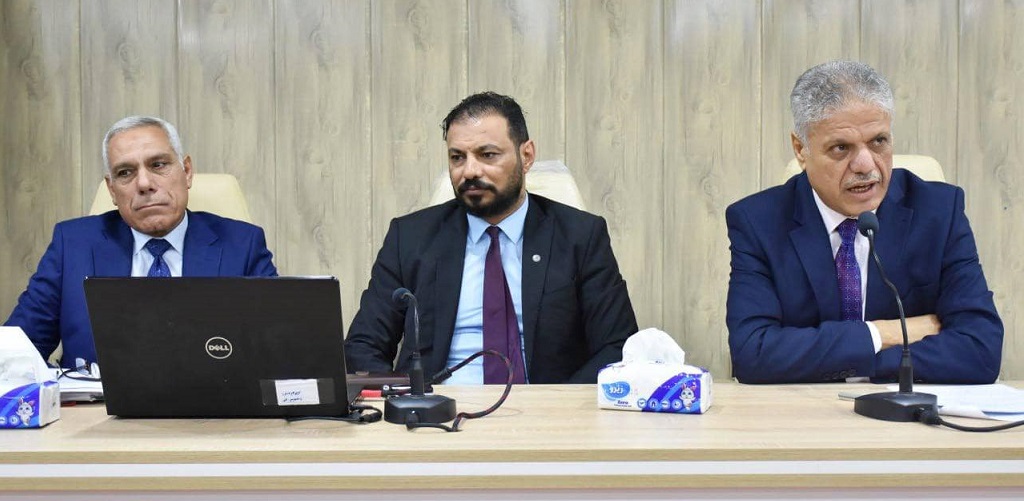
The College of Industrial Administration for Oil and Gas at Basrah University of Oil and Gas organized the tagged scientific symposium (General budget for 2023 in Iraq between the contradictions of reform and waste of resources), on Wednesday, 24th of May, at the Central Conference Hall, sponsored and attended by Mr. President of Basrah Oil and Gas University Professor Dr. Mohamed Halil Hafez Al-Kaabi and supervised by Mr. Dean of the College of Industrial Administration for Oil and Gas Dr. Sami Hashim Al-Saadi. "Reading the general budget for 2023" First-time budget "by Professor Dr. Youssef Al-Asadi, the second was entitled: "Employment policies are one of the evidence of waste of resources,” by Assistant Professor Dr. Sha 'ban Saddam Al-Amara. The symposium aimed to demonstrate the importance of financial resources and how to use them optimally and not waste them under political pressure in such a way as to reform and develop the national economy. From additions to operational budgets, functional allocations, oil companies, oil barrel price, and quantity of oil exports fixed in the budget, Emphasizing the fluctuations in oil prices that could lead to a decline from what has been set as a price per barrel, especially in the light of the Russian-Ukrainian war crisis, the possibility of non-realization of assumed revenues is the most critical challenge of this budget. Al-Amara spoke of employment policies as evidence of waste of resources and data related to ongoing and investment operational budgets and the deficit to cover them. The symposium found that the chronic problem in Iraq's public budgets was its total reliance on oil revenues, which accounted for 87.1% of this year's general revenues; Employment policies cause wastage, as the cost of this year's grades was 13.9 trillion dinars, while the majority of government departments suffer from disguised unemployment in high proportions. This increase in worker compensation was due to the introduction of 729,608 functional degrees, constituting a financial burden equivalent to the balances of certain regional countries. The symposium featured interventions from specialists, researchers, and academics attending the seminar, as well as a comprehensive media presence to cover the symposium's events. As well as honoring researchers at the end of the workshop with a book of thanks and appreciation